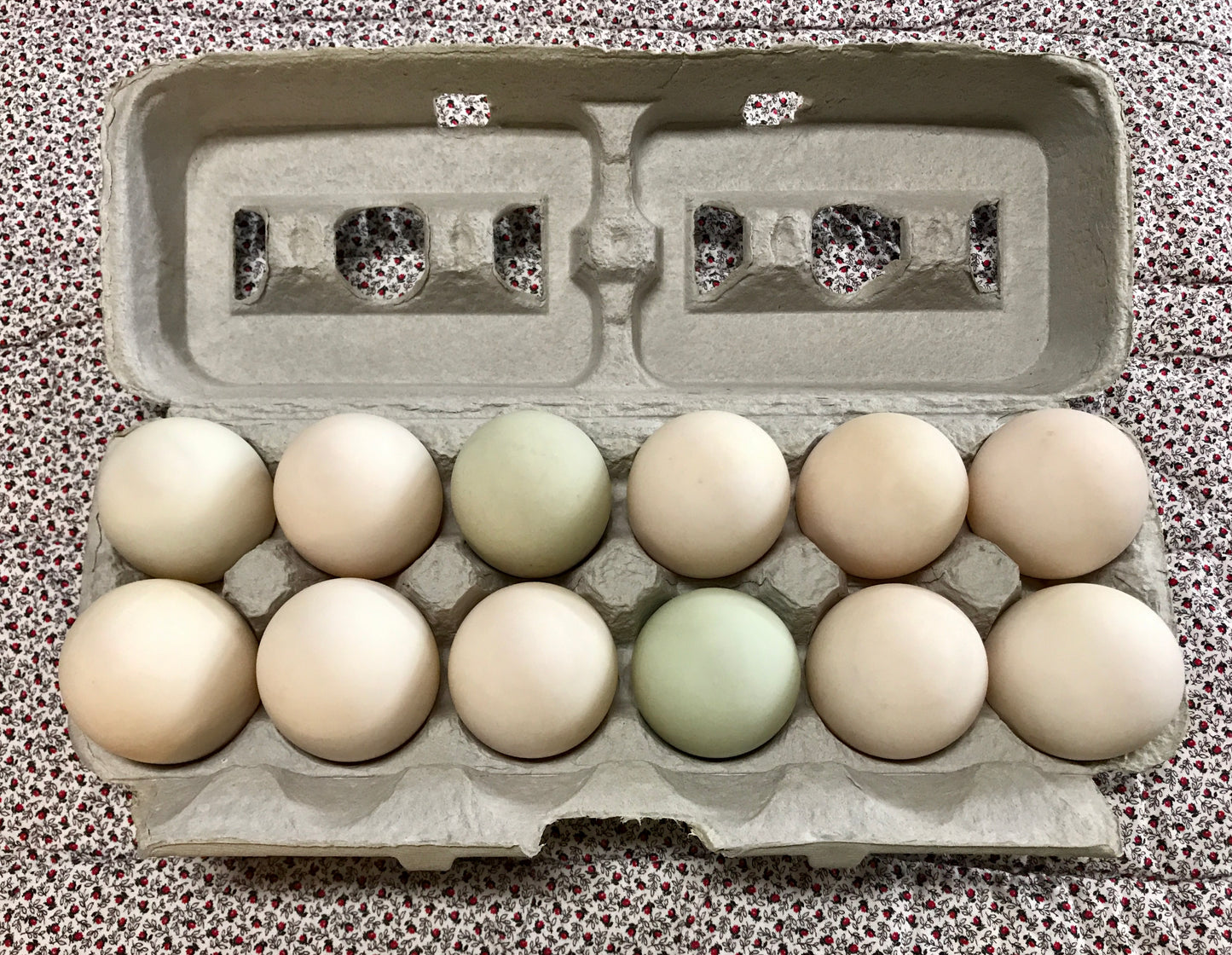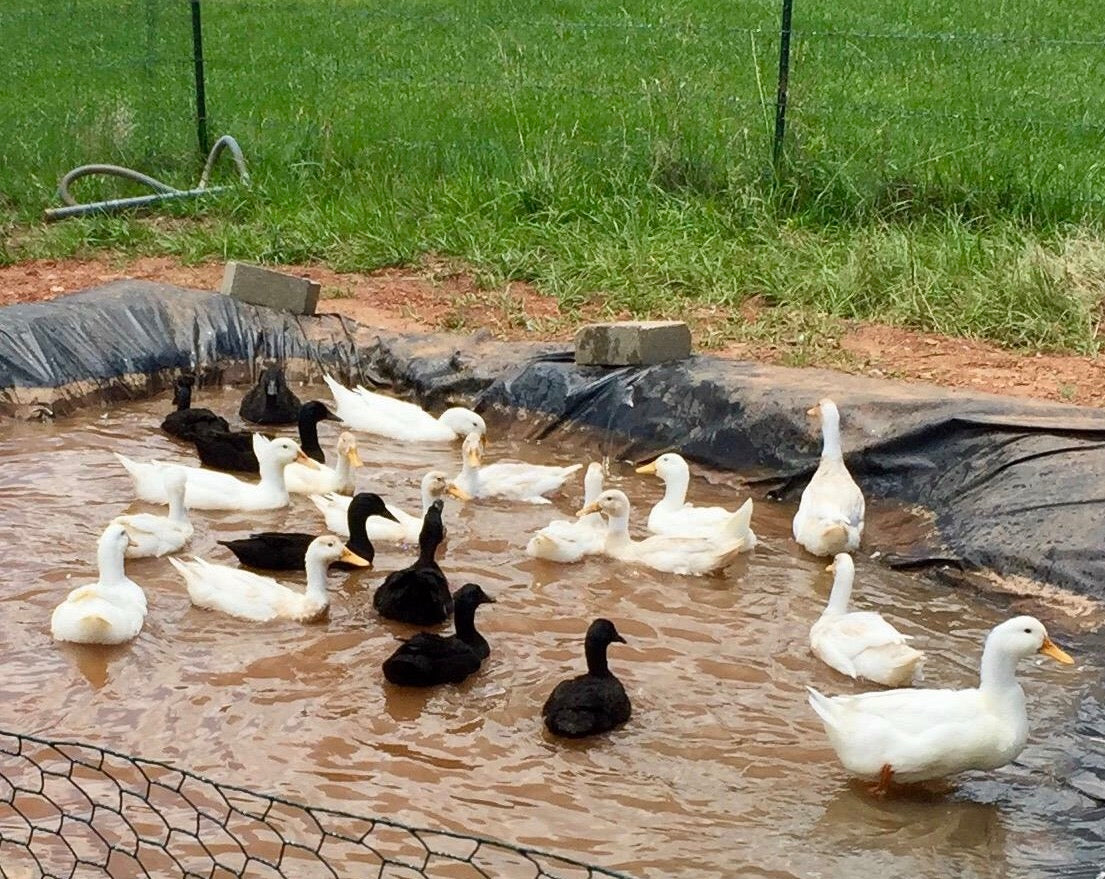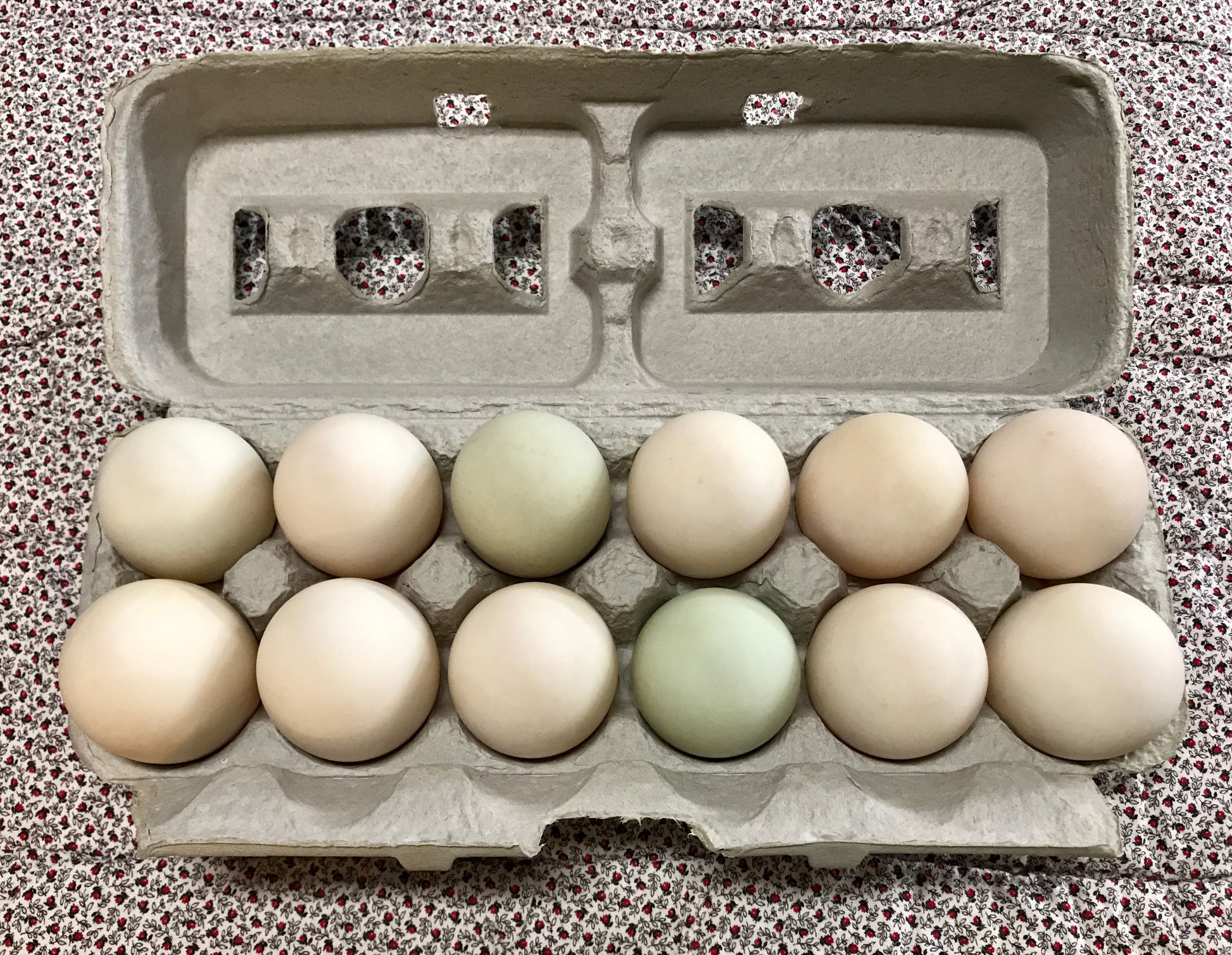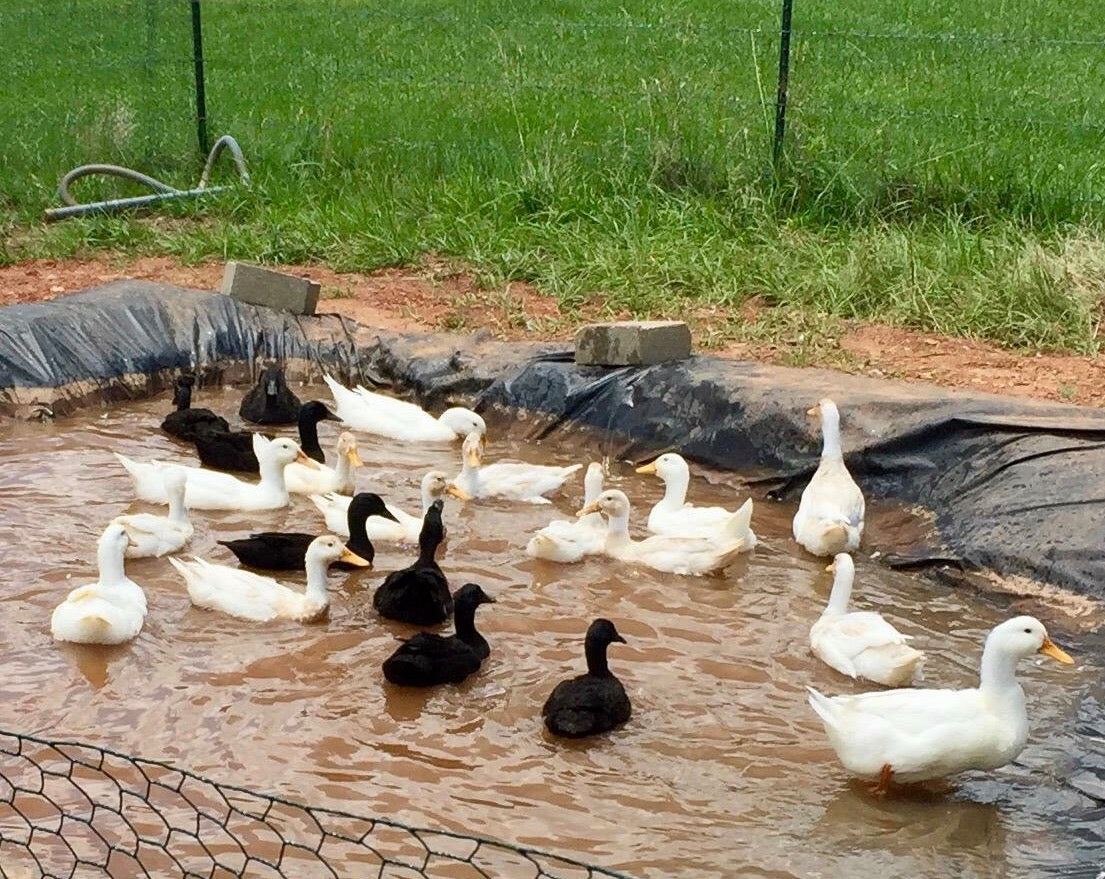Will's Eden Farm-To-Door Market
DUCK EGGS
DUCK EGGS
Couldn't load pickup availability
NOTICE: WE CANNOT SHIP EGGS THRU THE MAIL! (Please click on the announcement, above, for more details.)
$10.00/dozen
Farm fresh eggs from "reckless and free-wheeling" ducks who are fed soy-free, NON-GMO feed along with produce we've grown, healthy tidbits from the kitchen, and whatever plants and insects they forage for on their own.
If you haven't tried duck eggs, you need to! The whites have more protein than chicken egg whites, which makes for extra fluffy baked goods. And duck eggs have a higher yolk-to-white ration, which gives them an overall higher nutritional value. They're also safe for people who are allergic to chicken eggs! We use them in just about anything we bake (from pancakes and waffles, to cakes and breads). And we also love using them in a 1:1 ratio with chicken eggs whenever we do scrambled eggs, because the duck eggs noticeably improve the texture.
ABOUT OUR DUCKS: Our ducks free range just like our egg chickens, and can choose between the many wading pools, a shallow watering pond, and the huge 2-acre pond down below the house/barn. Interestingly, only a few of them spend time down on the real pond. It seems they've discovered the benefits of sticking close to the food source (and the Livestock Guardian Dogs)!
NOTICE: WE CANNOT SHIP EGGS THRU THE MAIL! Eggs that are ordered must be picked up either on site at the farm (Roanoke, AL) or else at the DHA Farmers Market in Brook Run Park (Dunwoody, GA) where we'll be on most Saturdays between 9am-12pm.
Share



